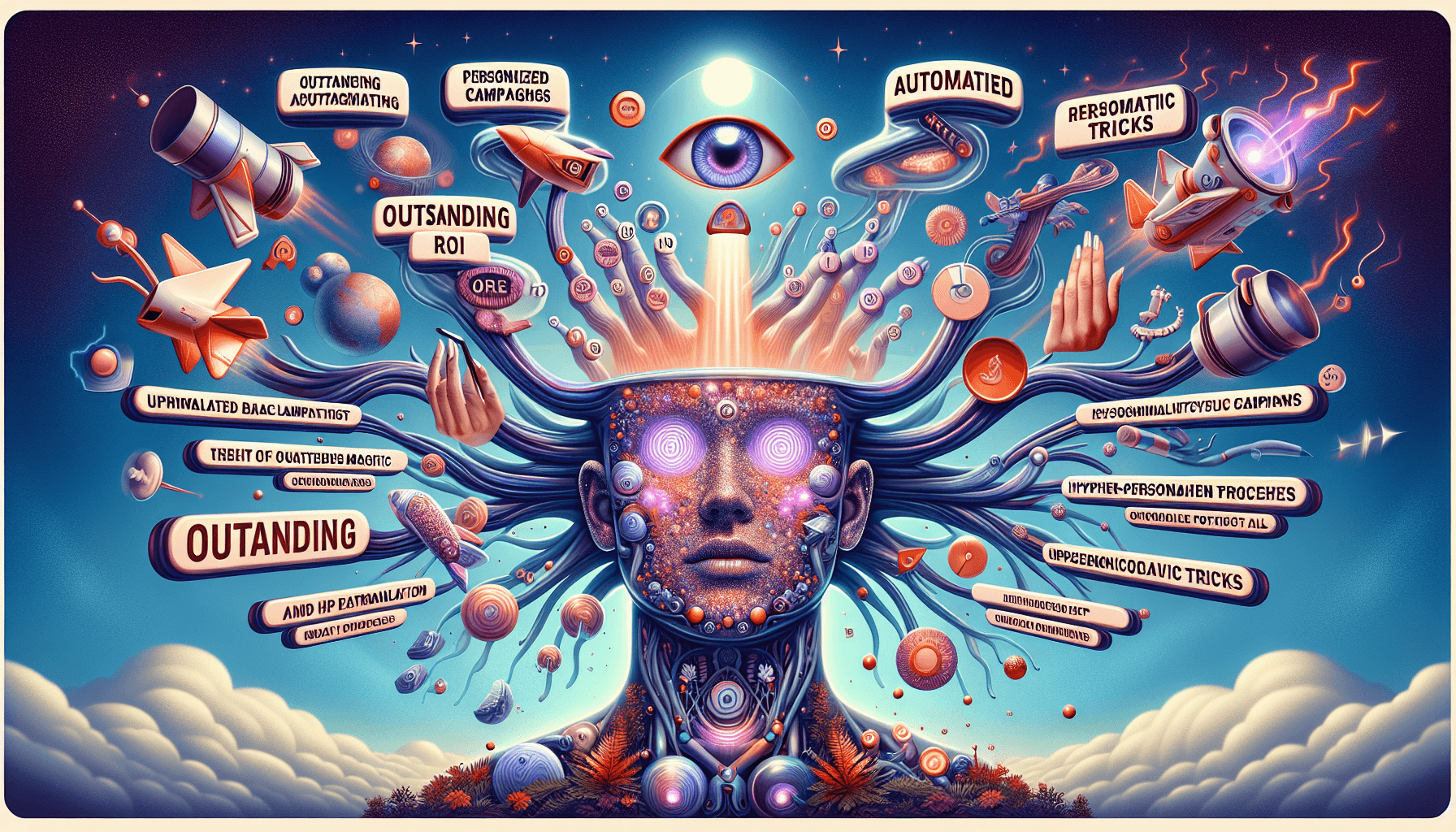
Introduction
In the ever-evolving landscape of marketing, email remains a powerhouse tool, often underestimated yet proven to deliver substantial results. However, the true potential of email marketing is unlocked when it meets its perfect partner: marketing process automation. For CEOs and CMOs navigating the digital marketing landscape, adopting a strategic approach towards this dynamic duo can transform their communication with potential customers, optimizing their campaigns for maximum effectiveness.
The Current State of Email Marketing
Email marketing has continued to deliver impressive returns on investment, boasting an ROI of 4200% which translates to $42 for every $1 spent. Yet, like any powerful tool, its efficacy is contingent upon how it is wielded. With average email open rates hovering around 20-25%, understanding the forces that drive engagement—and the pitfalls to avoid—is crucial for executives steering marketing strategies.
Key statistics reveal a landscape ripe with opportunity: personalization can boost open rates by 26%, while segmented campaigns achieve as much as a 760% increase in revenue. However, common issues such as sending irrelevant content, poor timing, and failure to leverage data can lead to disengagement. CEOs and CMOs must be acutely aware of these pitfalls to ensure that email marketing efforts are truly impactful.
Understanding Marketing Process Automation
Marketing process automation is more than just a tech-savvy buzzword. It represents the integration of technology to streamline marketing tasks, enhancing overall efficiency and effectiveness. From automating repetitive tasks like sending welcome emails to scheduling social media posts, the purpose of automation extends beyond mere convenience.
Automation components include email marketing platforms, CRM systems, analytics tools, and AI-driven solutions that foster enhanced decision-making. Contrary to simple automation, strategic automation involves leveraging these technologies to execute deeply personalized campaigns, driven by insightful data, crafted to engage specific customer segments.
The Synergy Between Email Marketing and Automation
The harmonious blend of email marketing with automation creates a powerful synergy. Automation tools not only streamline processes but also elevate precision and targeting, transforming standard email campaigns into laser-focused communication efforts. Consider a scenario where automated tools analyze user behavior to deploy personalized content at pivotal points along the buyer's journey.
Case studies such as those from e-commerce giants and digital service providers demonstrate the success when automation and email marketing are intertwined. Businesses have reported an increase in engagement, with personalized campaigns delivering conversion rates up to six times greater than traditional campaigns. Benefits abound, from time-saving and accuracy to enhanced personalization and effective audience segmentation.
Crafting Compelling Email Campaigns
At the heart of any successful email marketing strategy lies the ability to craft compelling campaigns. Essential components include engaging subject lines, a clear call to action, and body copy that resonates with the target audience. Personalization techniques, such as setting up dynamic content based on recipient behavior, can drive significant engagement improvements.
Consider the power of a subject line like "Unlock Exclusive Content Just for You!" paired with body copy that addresses the recipient by name, tailored to their specific interests. Such attention to detail fosters a connection that inspires action, reinforcing the brand's presence in the recipient's mind.
Strategic Automation Techniques for Email Marketing
Strategic automation techniques refine the process further, tailoring communication to different buyer journey stages. Setting up email sequences that nurture leads from initial awareness to decision-making phases proves to be extraordinarily effective.
The deployment of triggered emails, such as abandoned cart reminders or post-purchase follow-ups, ensures engagement at critical touchpoints. Employing AI and machine learning enables precision in targeting, focusing efforts on data-driven decision-making to optimize strategy execution.
Measuring Success and ROI in Email Marketing Automation
Like any marketing initiative, success is quantified through measurable results. Key performance indicators such as open rates, click-through rates, conversions, and customer acquisition cost offer a window into campaign efficacy. Tools like Google Analytics, HubSpot, and Mailchimp provide robust platforms for tracking these metrics.
Constantly analyzing performance data allows CEOs and CMOs to refine strategies, ensuring continuous improvement. Adjusting based on insights drawn from these tools can lead to further optimization, adapting campaigns to align with evolving consumer behaviors.
Integrating Email Marketing with Other Channels
Email campaigns do not exist in a vacuum. Effective marketing integrates email with broader strategies, encompassing social media, content marketing, and PPC. This holistic approach fosters a coherent brand presence, improving overall customer engagement.
Omnichannel experiences leverage different platforms to create an integrated journey. A customer who interacts with a brand on social media, receives engaging content via email, and encounters personalized adverts through PPC, sees a consistent narrative, enhancing their relationship and engagement with the brand.
Future Trends in Email Marketing and Automation
Technological advancements continue to shape the future of email marketing. AI-driven decision-making, chatbots for immediate customer interaction, and advanced data analytics lead the charge toward more nuanced and sophisticated campaigns.
Furthermore, increasingly stringent privacy regulations and data security measures compel marketers to adopt ethical practices. Predictions indicate the continued rise of hyper-personalized content and further integration of innovative technology over the next five years.
Conclusion
The integration of email marketing with process automation provides a potent strategy for digital success. By harnessing the power of automation, organizations can enhance efficiency, improve targeting, and drive substantial engagement. Executives are invited to explore these innovative approaches, ensuring they remain ahead in the competitive digital marketing landscape.
Additional Resources
For further insights and tools to enhance email marketing and automation strategies, consider exploring platforms like HubSpot, Mailchimp, and ActiveCampaign. Additionally, subscribing to Grenate's newsletter keeps you informed on emerging trends and best practices within the digital marketing and automation spaces.